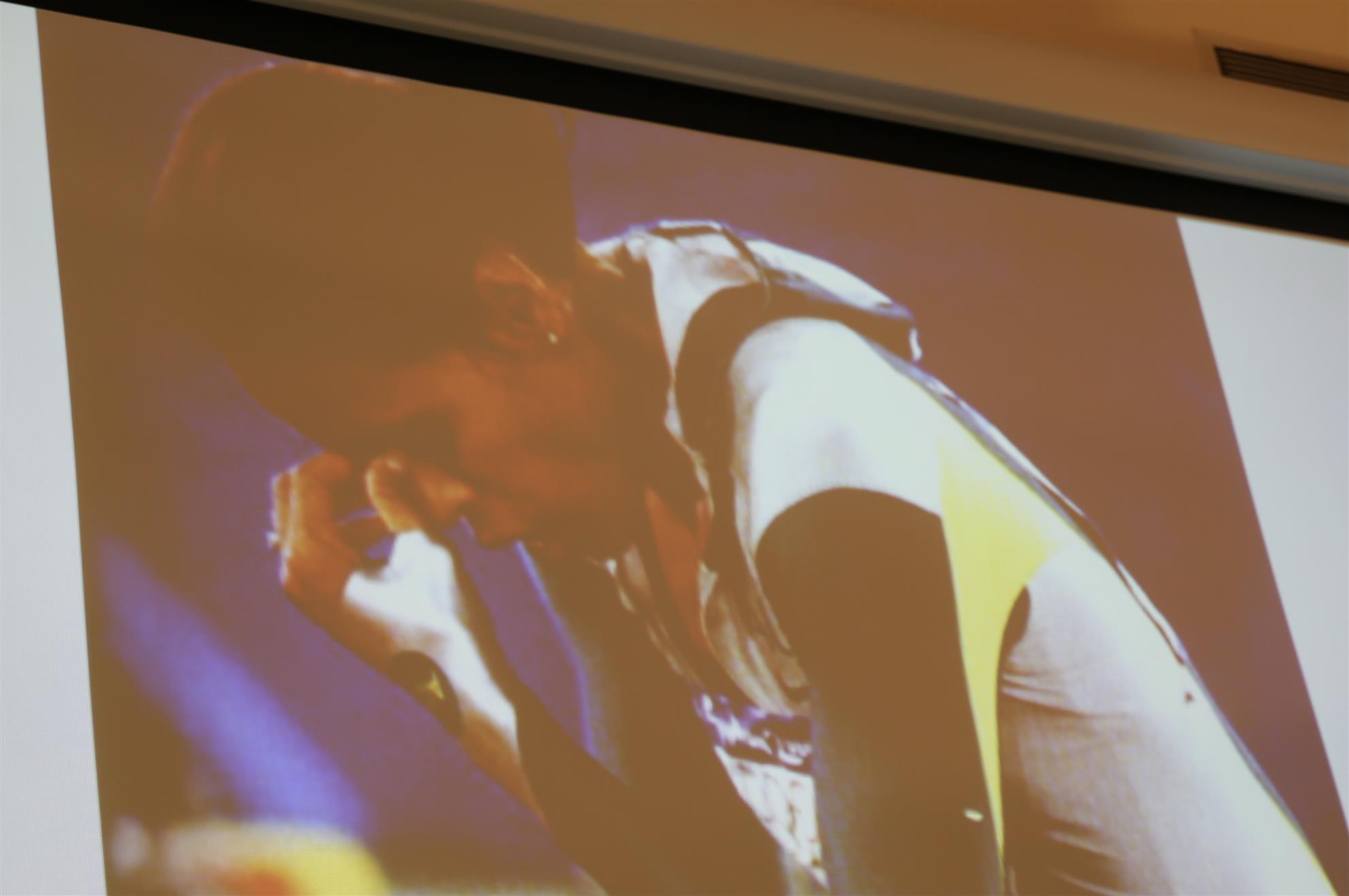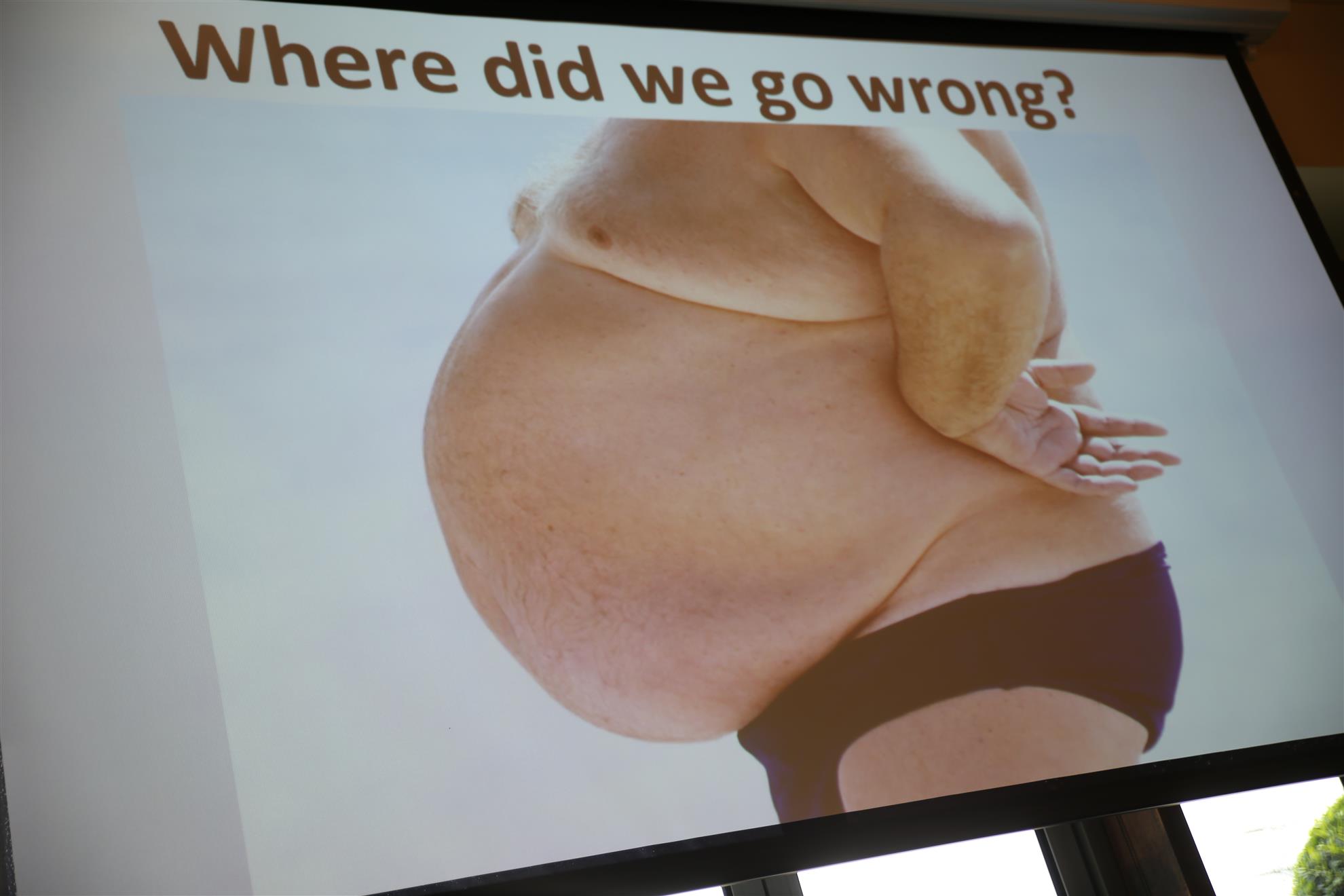
Members found both topics to be captivating.
Peter described himself as growing up wanting to play cricket for Australia and footy for South Melbourne. His involvement in sports turned out to be more comprehensive.
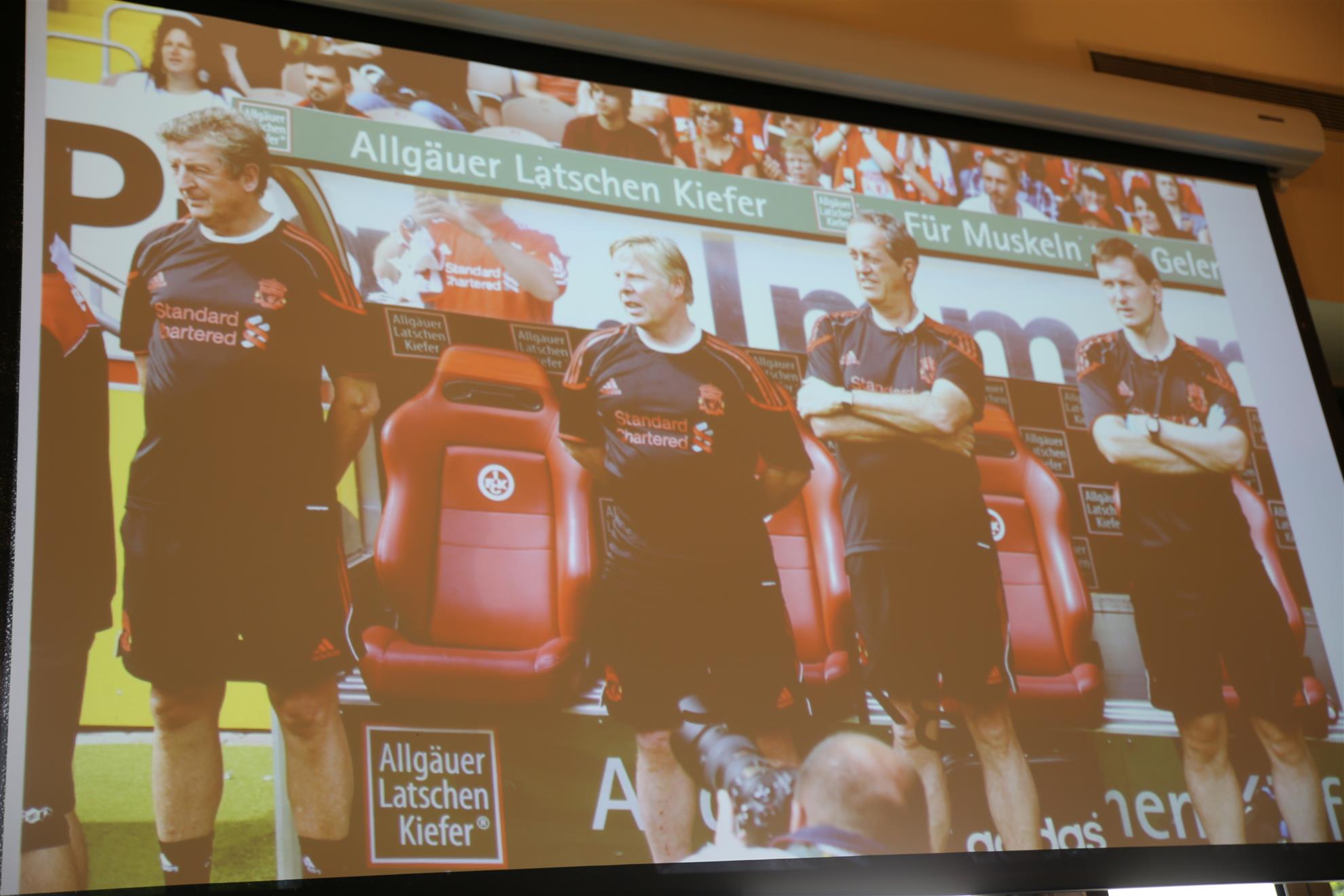
While running through his CV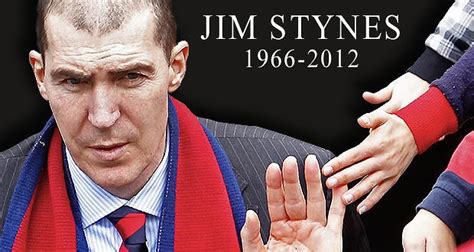 , Peter dropped in several anecdotes about teams and players: e.g. Jim Stynes, an Irish-born footballer who converted from Gaelic football to Australian rules football: playing for the Melbourne Football Club in the Australian Football League, he went on to become one of the game's most prominent figures, winning the sport's highest individual honour, the Brownlow Medal. According to Peter, Steynes had an extraordinary ability to withstand pain, and to play on despite his injuries.
, Peter dropped in several anecdotes about teams and players: e.g. Jim Stynes, an Irish-born footballer who converted from Gaelic football to Australian rules football: playing for the Melbourne Football Club in the Australian Football League, he went on to become one of the game's most prominent figures, winning the sport's highest individual honour, the Brownlow Medal. According to Peter, Steynes had an extraordinary ability to withstand pain, and to play on despite his injuries.
At Olympic Games, he described Muhammad Ali lighting the Olympic Flame, and Cathy Freeman’s relief from the enormous pressure she was under, after she won Olympic Gold.
His involvem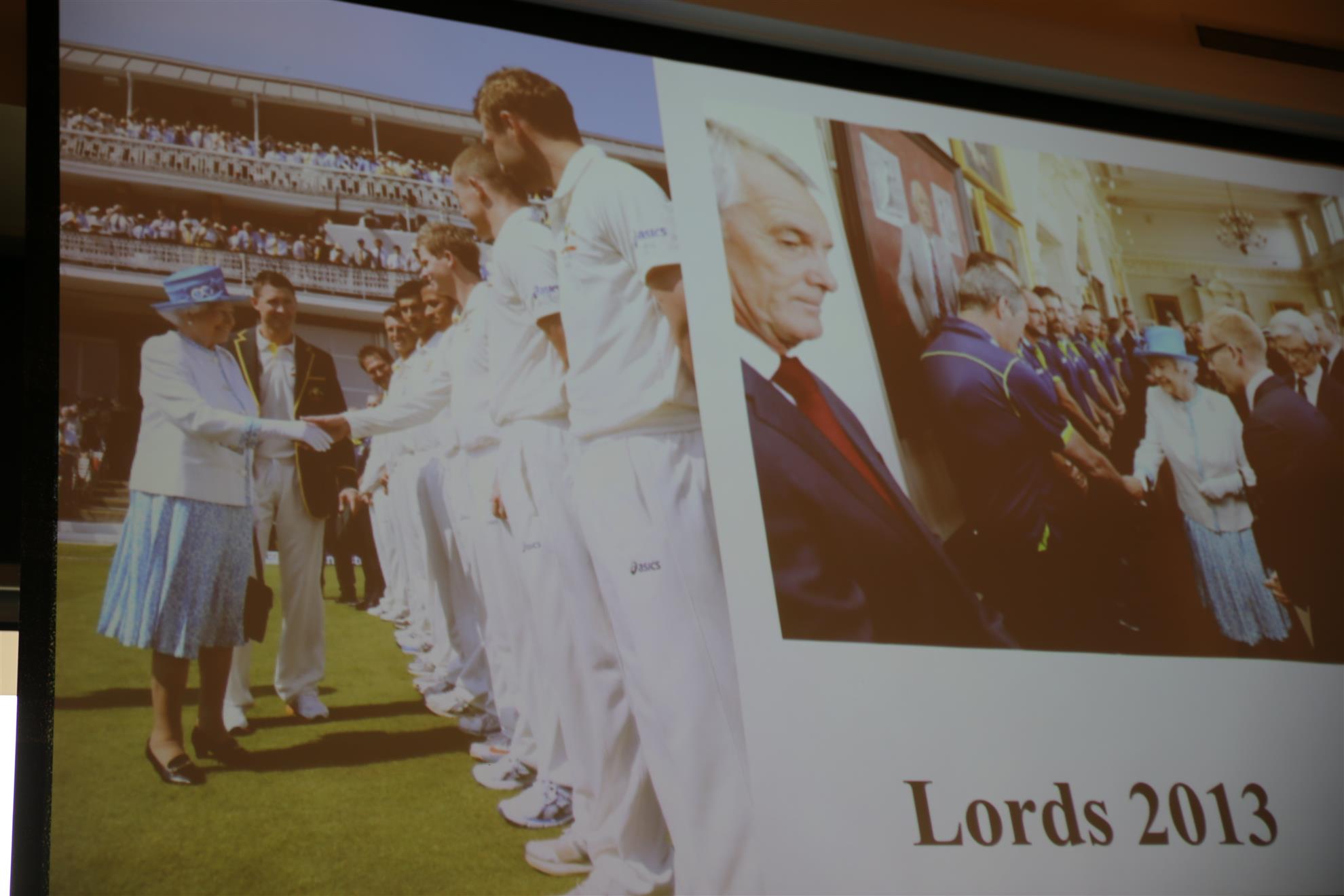
We felt we could listen to his anecdotes for hours, when he turned to his real topic for the day: Food and Sugar, and the current epidemics of Diabetes, Obesity and Dental disease.
Peters description of the amount of sugar in our food and even in “sports” drinks was alarming and thought-provoking.
At the age of 60 he found himself 15 Kg overweight and at risk to Type 11 Diabetes. He went on a low carbohydrate and healthy fat diet, and lost 13kg in 13 weeks.
In his own words:
In 2012 I turned 60, the age my late father was diagnosed with Type 2 diabetes. At the time I thought I was reasonably healthy, but in retrospect I now realise I was pre-diabetic. I was overweight, bordering on obese (despite following the recommended low fat diet with regular exercise), my blood tests showed I had elevated triglyceride and insulin levels, low HDL (the good) cholesterol, and I had a fatty liver. Having seen the devastating effects of Type 2 Diabetes on my father’s health, I was keen to do anything I could to prevent developing that condition.
So I decided to adopt a low c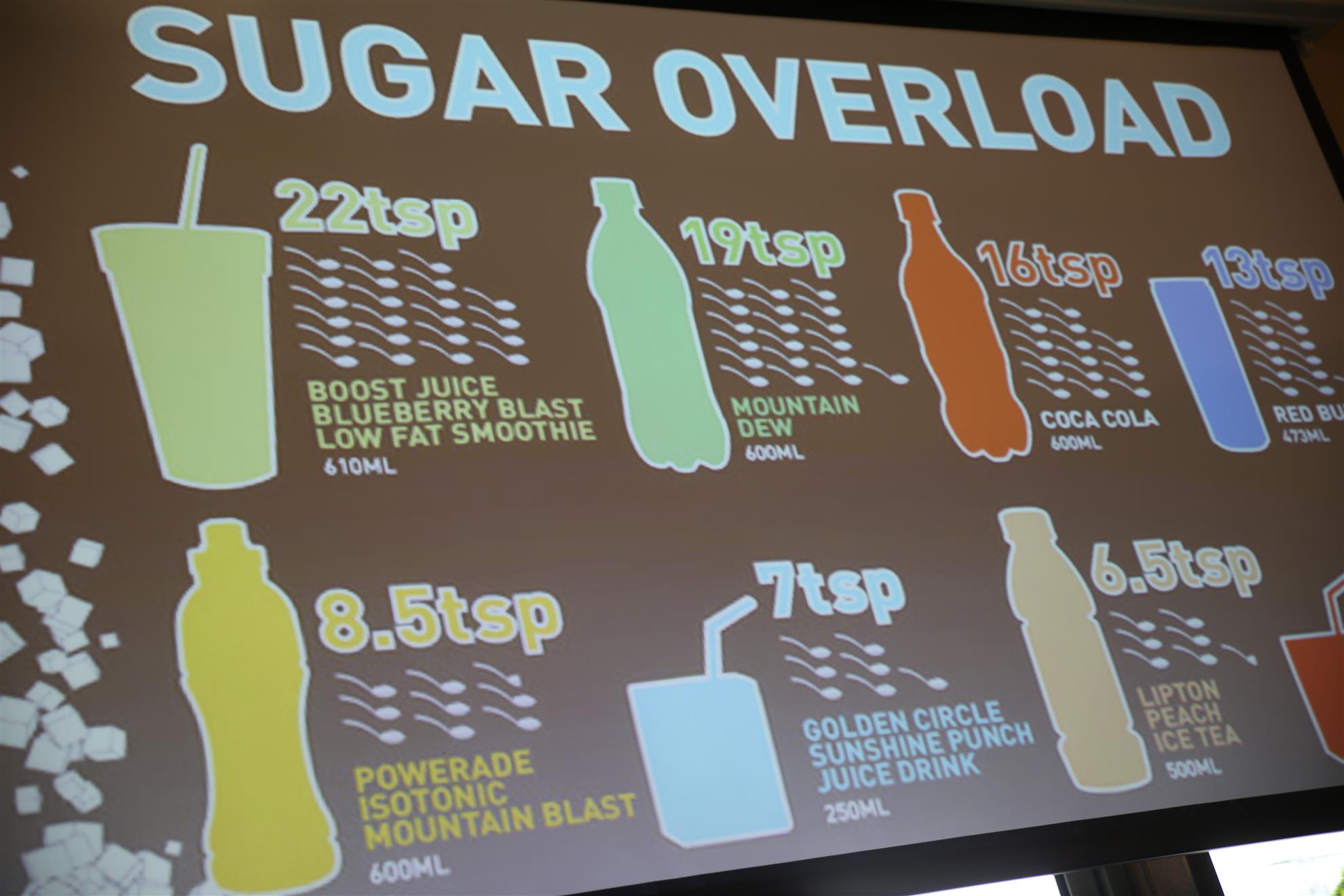
What did I feel? The first thing I noticed was that my appetite was significantly reduced. Previously I would have a bowl of cereal for breakfast and then be hungry by mid-morning and so on. Without sugar on board, I was almost never hungry, and in fact soon found myself only eating two meals a day instead of the previous three large meals (and quite a few snacks in between). I felt great, my energy during the day was better, and my exercise tolerance increased.
The only negative was that I had to buy a whole lot of new clothes as I went down two sizes!
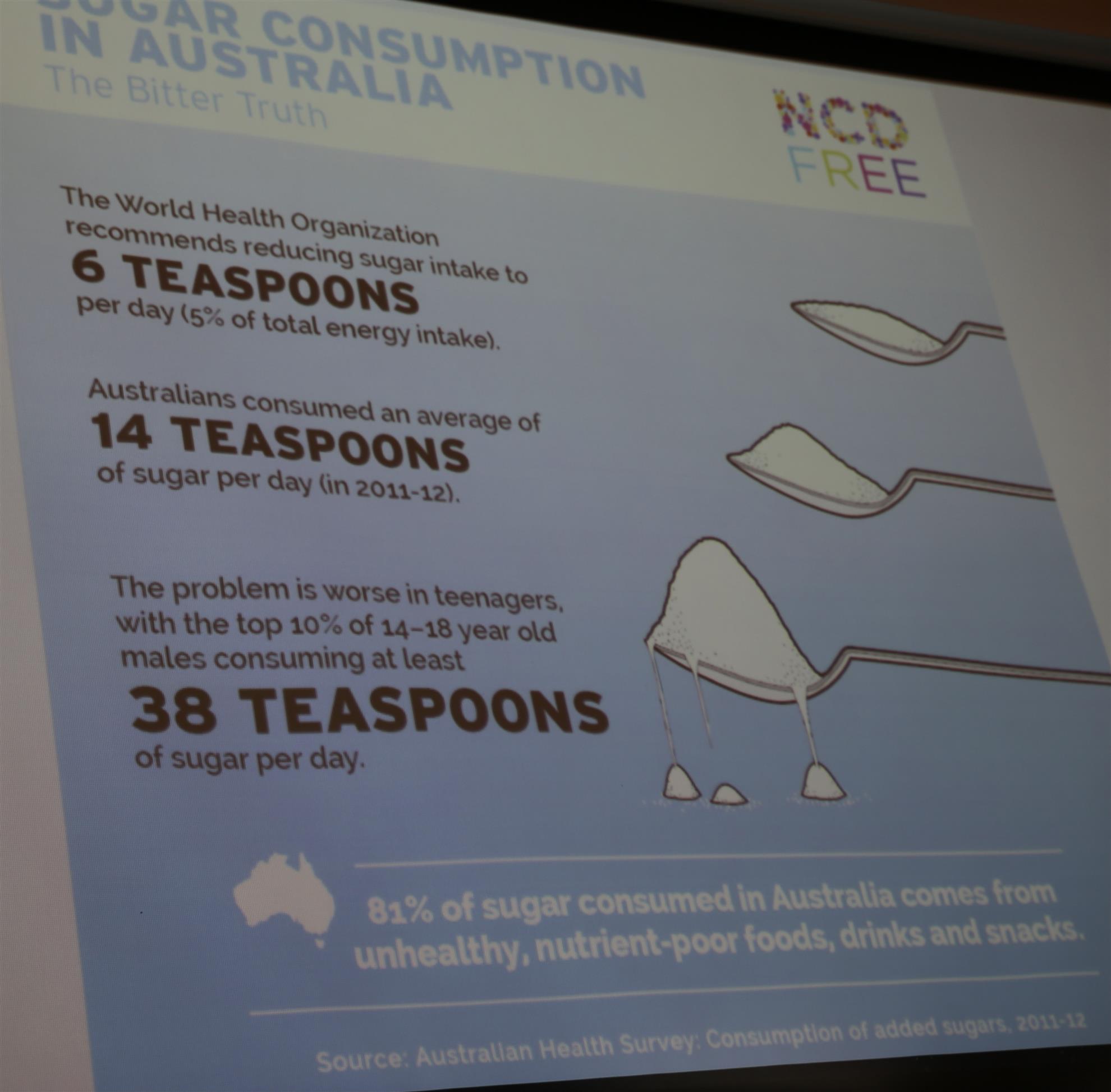
On this regime I am almost never hungry, I have plenty of energy, and am able to maintain my previous weight loss.
People always ask me “Don’t you miss sugar and processed food” and I can honestly say I don’t. Sweet things now taste too sweet, and I really enjoy my meals.
I can honestly say it is the best thing I have ever done.
Peter went on to establish Sugar by Half, which advocates a low carbohydrate regime to defeat diabetes.
And then the book:
A Fat Lot of Good : How the Experts Got Food and Diet So Wrong and What You Can Do to Take Back Control of Your Health
Like most doctors, Peter Brukner was trained to believe that drugs and surgery are the answers to all medical problems - including the epidemics of obesity, diabetes and other 'modern illnesses' that are threatening our healthcare system and the life expectancy of future generations. For years he was dismissive of any 'alternative' diets or lifestyle changes.
In A Fat Lot of Good, Dr Brukner busts the dietary myths we've been living by for decades and gives you all the information you need, in as simple a way as possible, to live a longer, healthier and - most importantly - more enjoyable life.
Professor Peter Brukner OAM
Peter is a specialist sports and exer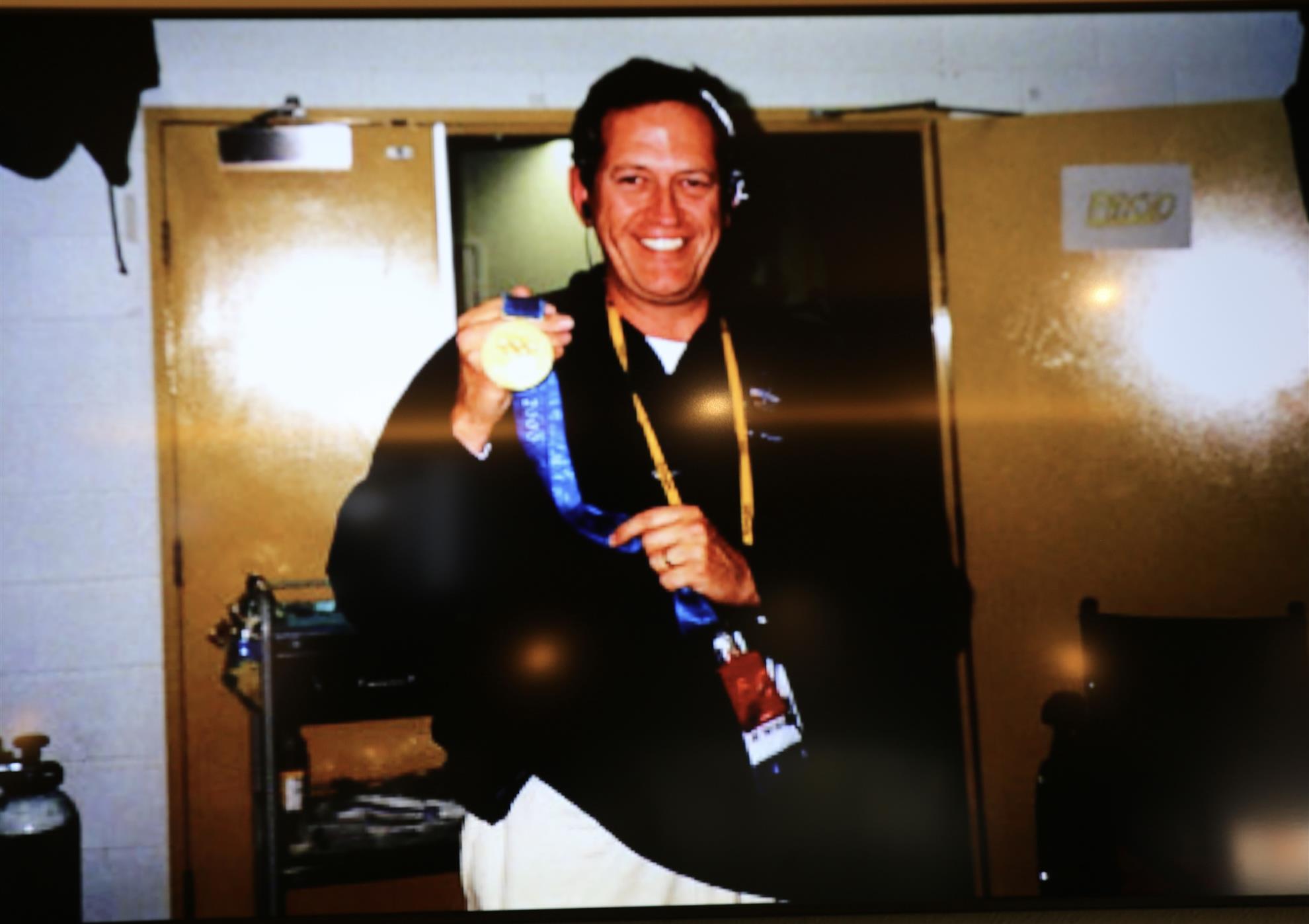
His story at https://www.sugarbyhalf.com/how_i_transformed_my_health
